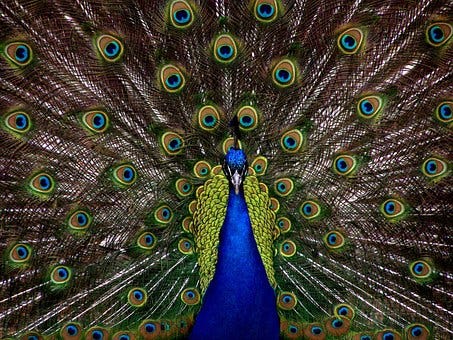
This post follows on from The Problem of Natural Selection, and continues its theme.
Undeniable: How Biology Confirms Our Intuition That Life is Designed is the name of a book by Douglas Axe¹. As the title implies, it is a critique of Darwinian evolutionary theory, arguing for Intelligent Design. I don’t intend to discuss it in detail, but want to refer primarily to the word intuition in the title.
Darwinian evolutionary theory, in its modern form, argues that evolution is a blind, purposeless process, natural selection acting upon random genetic mutations. (Blind and purposeless is what ‘natural’ means in this context.) The focal point of Axe’s argument is that nobody would believe this, if they relied purely upon their intuition (common sense); if we contemplated living organisms without any preconceptions, we would assume that some intelligence lies behind them.
As I noted in my earlier post three evolutionary biologists accept that position, even the arch-Darwinist and atheist Richard Dawkins conceding: “So overwhelming is the appearance of purposeful design that, even in this Darwinian era when we know ‘better’, we still find it difficult, indeed boringly pedantic, to refrain from teleological language when discussing adaptation”².
Darwinism is not the only belief of modern science that is counterintuitive. On a different topic, that of the nature of the self, in previous articles I have often quoted Francis Crick and his Astonishing Hypothesis, that “ ‘You’, your joys and your sorrows, your memories and your ambitions, your sense of personal identity and free will, are in fact no more than the behaviour of a vast assembly of nerve cells and their associated molecules… This hypothesis is so alien to the ideas of most people alive today that it can truly be called astonishing”³.
Crick made a statement comparable to that of Dawkins on the subject of evolution: “Biologists must constantly keep in mind that what they see was not designed, but rather evolved”⁴. If I may take the liberty of paraphrasing Dawkins and Crick, they are saying that, if biologists believed the evidence of their own eyes, they would concede that living organisms demonstrate purpose, thus intelligent agency; they have to keep trying to persuade themselves, that what they can see with their own eyes, against their better judgement, is a false perception.
Scientists, therefore, have to go to great lengths to persuade not only the public of their beliefs, even themselves.
Let us turn this argument on its head. If living organisms exhibit a convincing appearance of purpose and intelligent agency, is not the simplest explanation that they are indeed purposeful? And if, as Darwinists claim, the end results are exactly the same as if they were intended, how do we know that they were not intended? It is hard to imagine a scientific experiment which could decide. Perhaps the intuition that there is intelligence and purpose in life is correct. Perhaps the public know best.
Footnotes:
1. HarperOne, 2016
2. ‘Replicators and Vehicles’, Current Problems in Sociobiology, edited by King’s College Sociobiology Group, Cambridge University Press, pp45–64
3. The Astonishing Hypothesis, Simon & Schuster, 1994, p3
4. What Mad Pursuit: A Personal View of Scientific Discovery, Basic Books, 1988, p138